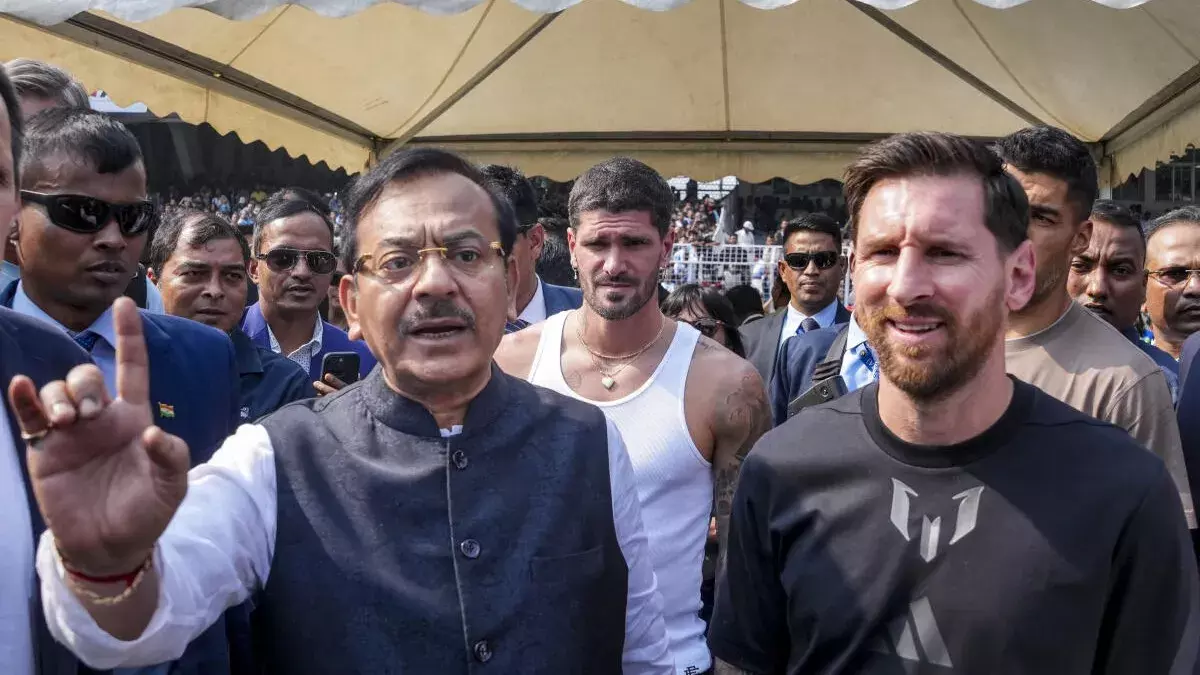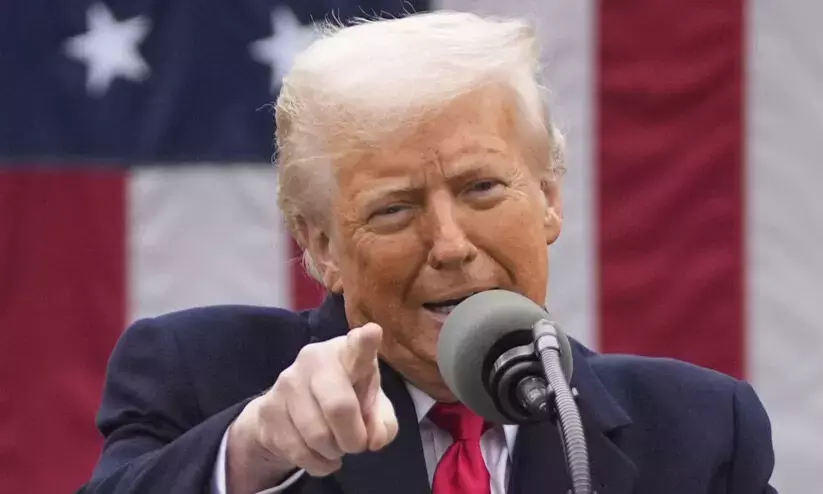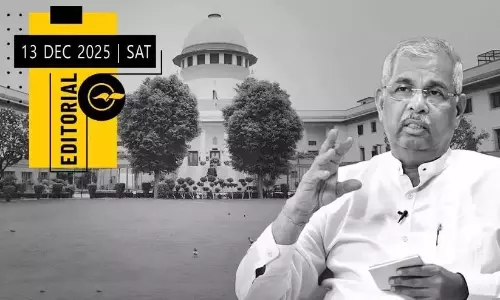
Xi visit brings new opportunities amid old challenges
text_fieldsIrrespective of the final outcome of Chinese President Xi Jinping's maiden visit to India, it surely marks a unique and qualitative change in the India-China relations. Hitherto, this relationship has been known more for its vocal than the real, vital content.
Observers of India-China relations who had got used to watching India as the passive and docile partner in the diplomatic intercourse between two Asian neighbours, are pleasantly shocked to notice Chinese leaders going out of their way to please India since the Narendra Modi government was inaugurated in May this year.
India's every single Chinese guest in the past six decades since Jawaharlal Nehru to Manmohan Singh made it a point to give enough reasons to his hosts to be perceived as a bully banging New Delhi's doors with a list of impolite do's and don'ts. But Xi appears to have left no stone unturned to present himself as the real Santa Clause at the doors of a four-month-old Modi government this time.
With his bag full of goodies like investment in bullet trains, industrial parks, twin-city projects, highway construction offers and investment in every perceivable field, the Chinese president looks bent upon outmatching his bête-noir Japenese Premier Shinzo Abe in pleasing and making Modi happier.
As icing on the cake, Beijing has already announced that China is ready to sign cooperation agreements with India in fields like climate change, energy production, food security, anti-terrorism, culture, tourism and even film industry. If Chinese media is to be taken at its face value, Xi would be too happy to outplay Japan's offer of $35 billion investment in India by $100 billion - an impressive factor of three - in coming five years.
Architects of this new found hope on both sides of the Himalayas deserve due appreciation for this pleasant turn to an otherwise sad chapter of modern Asian history. But all said and done, there are a host of complex and simmering issues between the two countries, and these are too crucial to be pushed under the carpet. If left unattended, any of these issues has the potential of singularly derailing the already delicate relations between the two Asian giants.
Some of the issues on the top of this list that make India an apprehensive and reluctant partner in its dialogue with China, include:
- The unending border dispute and regular incursions into Indian borders by the People's Liberation Army (PLA)
- The use of Pakistan as Beijing's proxy to hold up India in her tracks
- China's ambitious designs over river waters from Tibet
- Developing Tibet into a formidable garrison against India
- Support to separatist and anti-India extremist outfits by Beijing
- Overwhelming trade gap between the two countries
An altogether new and promising factor in the unfolding new era of India-China relations is that both sides today enjoy the stewardship of strong leaders with reasonably stable governments at their command.
One hopes that Chinese leadership has realised by now that dealing from a strong position with weak, or even almost non-entity governments in New Delhi - like the recent one under Manmohan Singh - may give a position of advantage to China in dealing with India. But such an imbalance has only proved detrimental towards developing a mutually trustful and respectful relations.
Although the relations between two nations don't exclusively depend on the two leaders alone, yet it is true that two strong and well meaning leaders on both sides can prove very effective in creating a comfortable meeting space to take the relations ahead.
There is no doubt that the economic and financial goodies in Xi's bag are very attractive and welcome for Modi's India that has decided to take India on the highway of economic and industrial growth. To say it in simple words, it is mainly the economic support from a cash-rich China to an ambitious India which holds great promises for giving India-China relations an "orbital jump" as Ajit Doval, special envoy of Modi to the Chinese President, has put it.
It also goes without saying that thanks to its deep pockets, China can very easily outmatch Japan on this front. But it will be too naive to presume that the competition between Shinzo Abe and Xi Jinping is just as simple as one of luring the beautiful woman with a fatter wad of money.
After all, all the financial and technological aid that Modi's government needs today are also available from a host of friendly countries, albeit at a little higher market price than what China offers.
Finally, it is a host of fears, apprehensions and anxieties facing New Delhi in her relationship with Beijing that have to be properly attended to by Xi and his comrades to win over the hearts of India. Bullying behaviour of the PLA on the Indian borders at Chumar in Ladakh on the eve of Xi's visit has only underlined these Indian fears as serious and real.
Finding an amicable and mutually respectful solution to all these irritable issues is a common challenge before the two great leaders of two great neighbours. For Modi government the real challenge is to preserve this bonhomie between the two Asian rivals for at least a decade, if not longer. For, India needs at least one peaceful, un-distracted and un-disruptive decade of economic and industrial development to have a sure foothold on her bullet train to a strong and prosperous future. Xi's visit can prove a useful opportunity.
(Vijay Kranti is a senior journalist and a keen observer of China and India-China relations. The views expressed are personal. He can be reached at v.kranti@gmail.com)






















